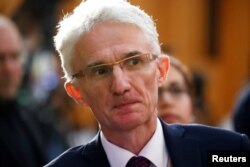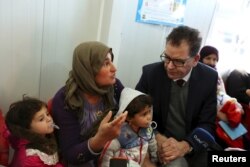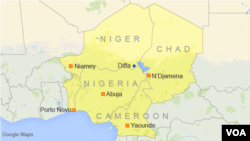More than $1 billion in fresh aid will likely be pledged at a conference of donors to the drought-plagued region around Lake Chad, U.N. humanitarian chief Mark Lowcock said on Monday.
A famine was averted in the region last year largely thanks to international aid, but millions of people in Nigeria, Niger, Chad and Cameroon were still in dire need of help, Lowcock told reporters on the sidelines of the Berlin conference.
“The crisis is not over. There are still 10 million people who need lifesaving assistance,” he said. “A quarter of the people we are trying to reach are displaced from their homes and the only means of staying alive they have is what is provided by humanitarian organizations.”
Lowcock said last year’s donor conference in Oslo, Norway had raised $672 million in funds for the region, and he expected to double that amount this year, which will allow more work to be done addressing underlying problems in the region.
Detailed pledges were not immediately available. Over 50 delegations are attending the conference.
Germany, a key destination for migrants fleeing Africa and non-permanent member of the U.N. Security Council from 2019, is co-hosting a two-day conference with Norway, Nigeria and the United Nations to drum up support for the region.
Chancellor Angela Merkel’s ruling coalition had vowed to help African nations improve conditions to keep people from embarking on treacherous journeys to try to reach Europe.
German Development Minister Gerd Mueller, just back from a visit to Chad, said 2.4 million people have already fled the region due to climate change and violence blamed on the Boko Haram insurgent movement and Islamic State.
“We need a joint European solution. And the international community must get far more engaged for the overall region to give these people a chance for survival and undercut a breeding ground for terrorism,” Mueller said in a statement.
He said it was vital that donors actually provided the funds they pledged, noting that only third of the needs identified by international organizations had been covered to date.
Achim Steiner, head of the U.N. Development Program, warned that more people could flee the region unless the international community stepped in to provide long-term perspectives for people in the region.
“We should remember that we made a mistake eight years ago when the Syria crisis began and many people were forced to flee,” he told Reuters in an interview, noting that U.N. agencies were forced in that case to close hospitals and schools and halve food rations due to a shortage of funds.








